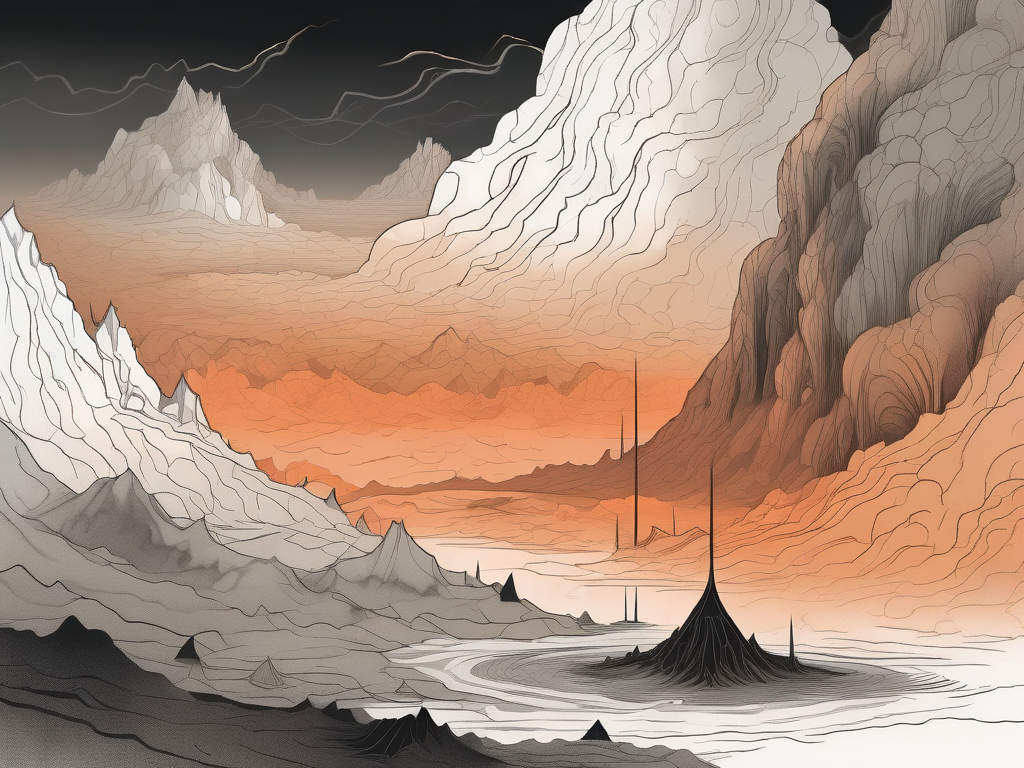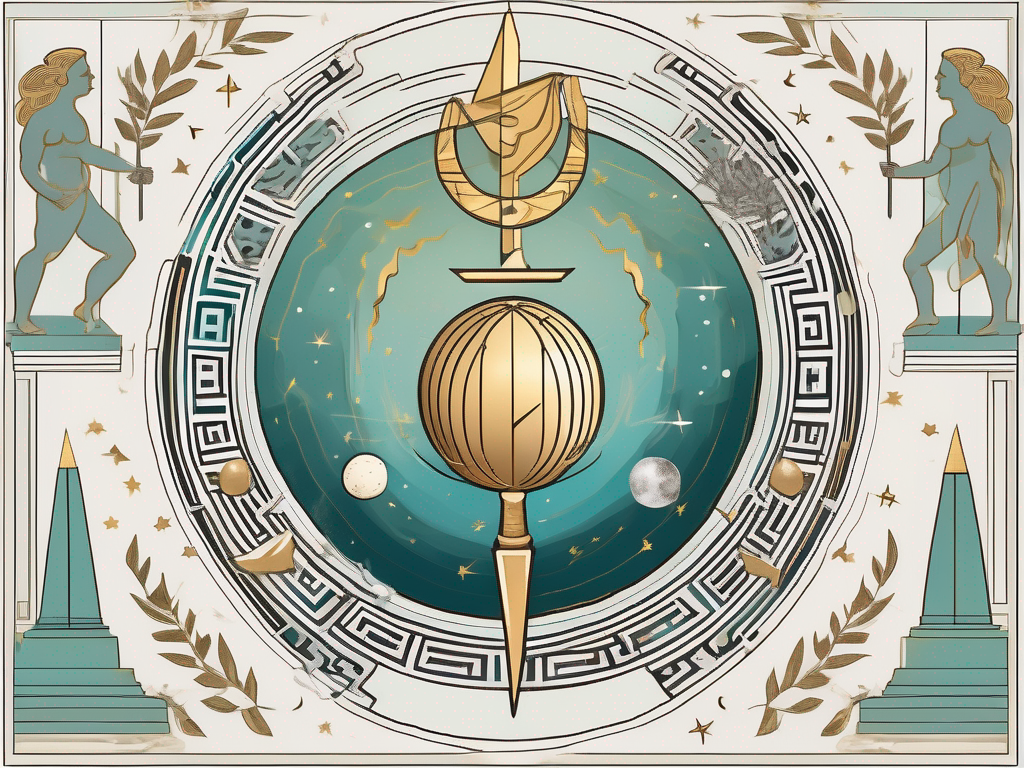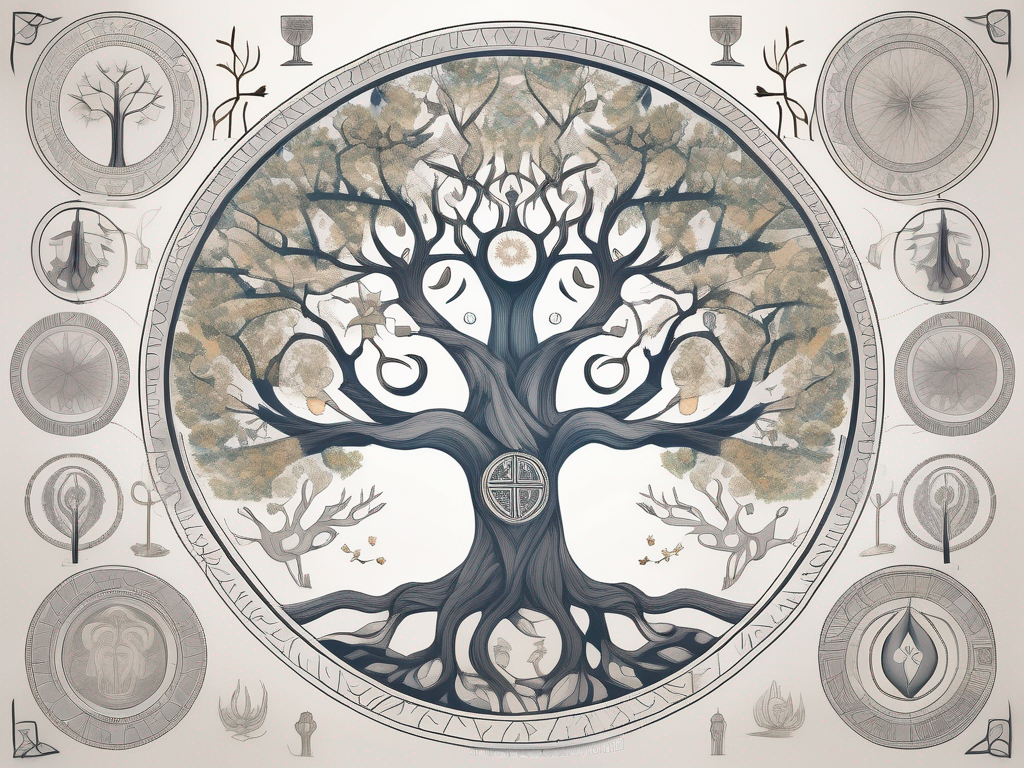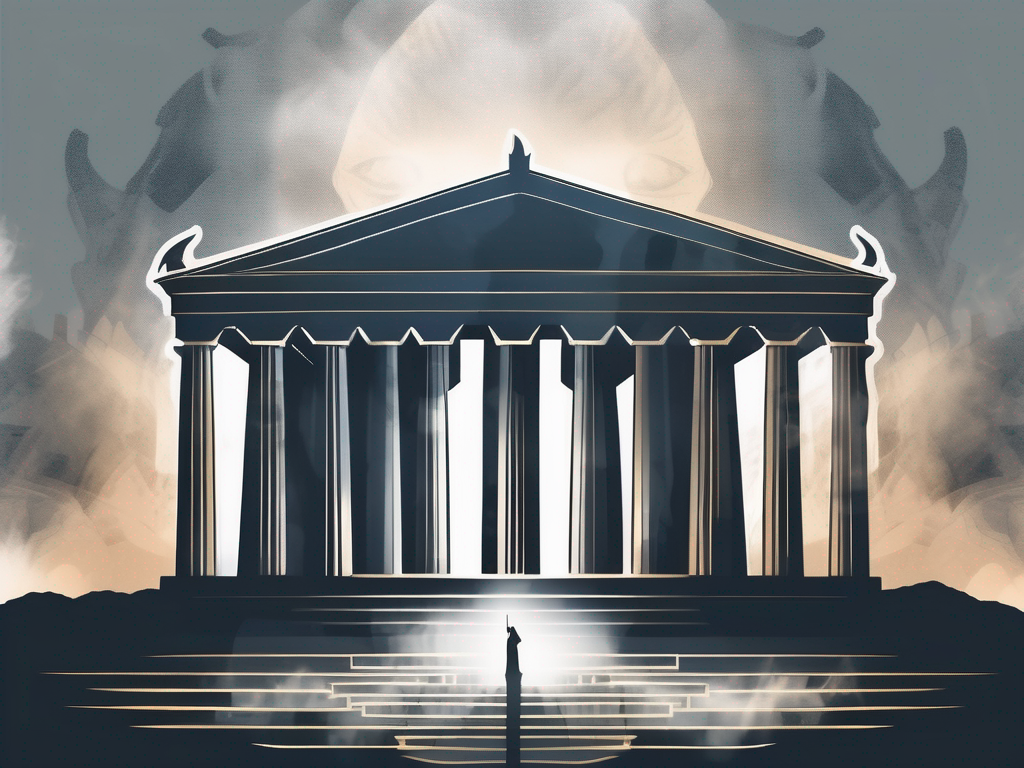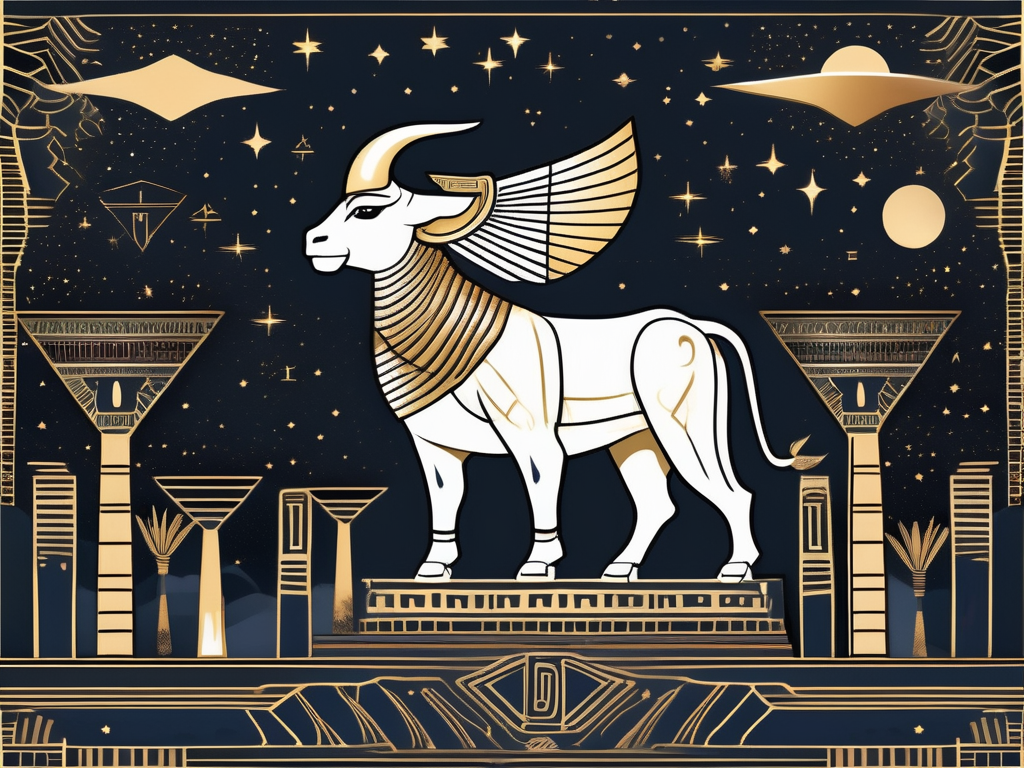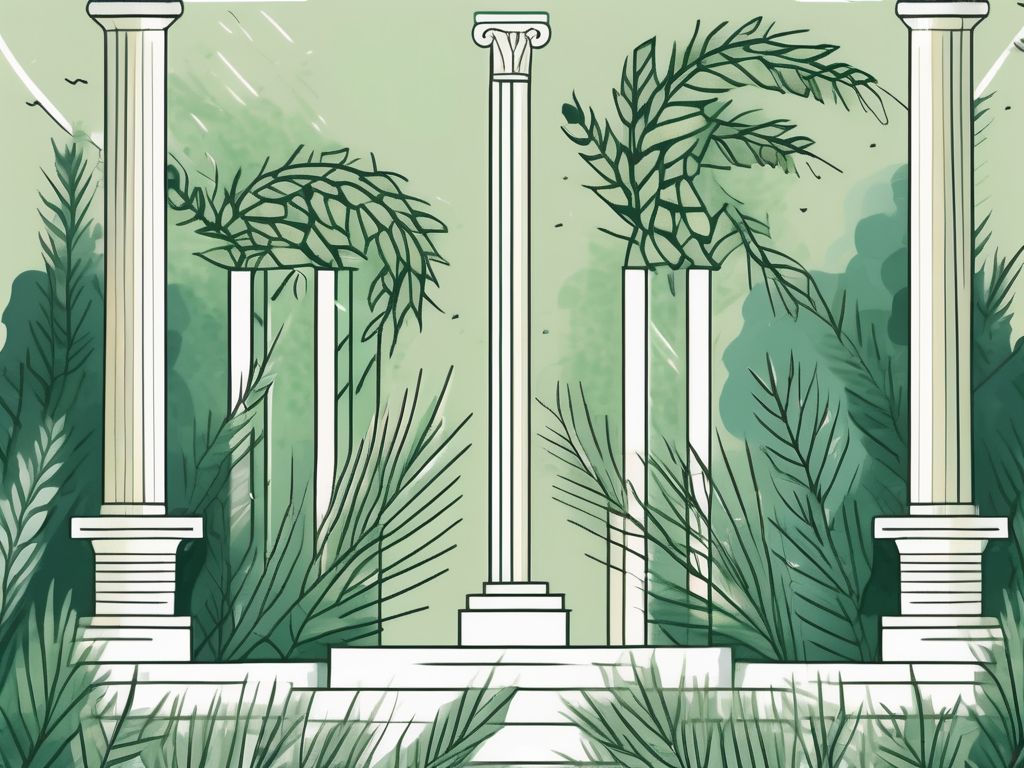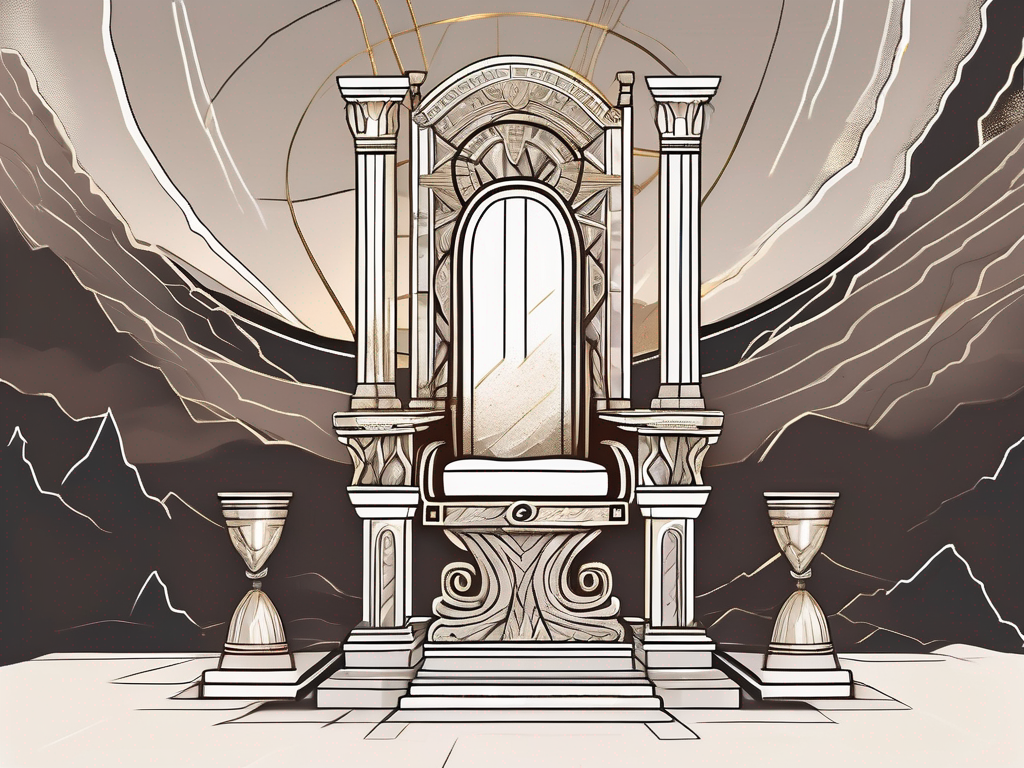Welcome to the fascinating world of Tartarus! In Greek mythology, Tartarus is a realm that holds immense significance. Let’s dive deep into this intriguing concept and explore its various aspects, from its origins to its modern interpretations.
Understanding the Concept of Tartarus
The Origin of Tartarus in Greek Mythology
Tartarus finds its roots in ancient Greek mythology. According to the myths, Tartarus is both a deity and a place. It was born out of Chaos, the primeval void, alongside other deities such as Gaia (Earth), Uranus (Sky), and Eros (Love).
As the primordial deity, Tartarus presides over a vast abyss, which is also named Tartarus. This cosmic pit is located beneath the world of mortals and the realm of the gods, serving as a prison for the wicked and a place of punishment.
The concept of Tartarus as a place of punishment can be traced back to the Titanomachy, the great war between the Titans and the Olympian gods. After their victory, the Olympians banished the defeated Titans to Tartarus, where they would suffer for eternity.
Within the depths of Tartarus, there are various levels and chambers, each designed to torment different types of sinners. The punishments inflicted upon the wicked range from eternal fire and endless thirst to being eternally trapped in a cycle of torment.
Tartarus as a Deity and a Place
As a deity, Tartarus personifies the sinister nature of the underworld. He is associated with darkness, suffering, and everlasting torment. However, Tartarus is not an all-powerful god like Zeus or Poseidon. Instead, he is a personification of the detrimental forces that govern his realm.
From a geographical perspective, Tartarus is a multifaceted realm. It is often described as an immeasurable pit, surrounded by thick walls of bronze. Legend holds that it is so deep that even the gods themselves fear looking into its depths. The entrance to Tartarus is guarded by the three-headed dog, Cerberus, who ensures that the wicked never escape.
Within Tartarus, there are various regions and domains, each reserved for different types of sinners. One such region is reserved for those who committed acts of betrayal, where they are eternally tormented by the very people they betrayed. Another region is dedicated to those who were excessively violent during their mortal lives, where they are subjected to brutal punishments that reflect their past actions.
It is believed that even the gods cannot interfere with the punishments inflicted upon the souls in Tartarus. The realm is governed by its own set of laws and justice, ensuring that the wicked receive their due retribution.
While Tartarus is primarily associated with punishment and suffering, it also serves as a reminder of the consequences of one’s actions. It stands as a deterrent for mortals, cautioning them against committing acts that would lead them to such a dreadful fate.
The Role of Tartarus in Greek Mythology
In Greek mythology, Tartarus is a significant element in the epic conflict between gods and Titans, known as the Titanomachy. The Titans, mighty beings who ruled before the Olympians, led a rebellion against the gods. As a consequence of their audacious defiance, Zeus, the king of the gods, banished them to Tartarus, a place of eternal torment and imprisonment.
Tartarus, with its ominous reputation, serves as a crucial symbol of punishment in Greek mythology. It is a dark abyss where individuals guilty of heinous crimes or offenses against the gods are condemned to suffer. The punishments inflicted upon them within its depths are tailored to match the severity of their transgressions, serving as a stark reminder of the consequences that await those who defy divine law and moral order.
Tartarus in the Titanomachy
The Titanomachy, a monumental clash between the gods and Titans, unfolded with Tartarus as a central stage. The Titans, led by Cronus, sought to overthrow the gods and reclaim their dominion. However, their rebellion was swiftly quelled by the combined might of Zeus and his divine allies. As a result, the defeated Titans were cast down into the depths of Tartarus, forever imprisoned in its unforgiving embrace.
Within Tartarus, the Titans endure an eternity of suffering, their once-mighty forms reduced to mere shadows of their former glory. The weight of their rebellion and the consequences of their actions hang heavy upon them, as they are subjected to unimaginable tortures that befit their crimes.
Punishment in Tartarus
Among the many tales of punishment in Tartarus, one of the most notable is that of Prometheus. This cunning Titan stole fire from the gods and gifted it to humanity, an act that greatly angered Zeus. As a penalty for his audacity, Prometheus was condemned to an eternal torment that defies comprehension.
Chained to a colossal rock within Tartarus, Prometheus endures a perpetual cycle of suffering. Each day, an eagle descends upon him, tearing at his flesh and devouring his liver. Despite the excruciating pain, Prometheus’ liver regenerates overnight, perpetuating his torment for all eternity.
Such is the fate that awaits those who dare to challenge the authority of the gods. Tartarus stands as a chilling testament to the consequences of hubris and the unyielding power of divine justice.
Notable Inhabitants of Tartarus
The Titans in Tartarus
As mentioned earlier, the Titans, who reigned before the Olympians, are among the most renowned inhabitants of Tartarus. These powerful beings, including Cronus, Atlas, and Prometheus, are trapped in this dark abyss for their rebellion against the gods. Their eternal confinement serves as a reminder of the consequences of challenging divine authority.
Let us delve deeper into the intriguing stories of these Titans. Cronus, the leader of the Titans, was known for his insatiable hunger for power. He devoured his own children, fearing they would overthrow him, until his son Zeus managed to escape and eventually defeat him. Atlas, on the other hand, was condemned to bear the weight of the heavens on his shoulders for eternity. This punishment was a direct consequence of his role in the Titanomachy, the great war between the Titans and the Olympians. Lastly, Prometheus, the Titan who gifted humanity with fire, suffered a particularly cruel fate. He was bound to a rock, where an eagle would feast on his liver every day, only for it to regenerate and be eaten again the next day.
Other Mythical Beings in Tartarus
Tartarus is also believed to be home to various other mythical beings. Here, one can find monsters such as the Hekatonkheires, three enormous creatures with fifty heads and one hundred arms, as well as the fearsome Typhon, a monstrous serpent-like entity.
Let us explore the terrifying legends surrounding these creatures. The Hekatonkheires, also known as the Hundred-Handed Ones, were born to the primordial deities Uranus and Gaia. These formidable beings played a crucial role in the Titanomachy, using their immense strength to aid the Olympians in their victory. However, their power and ferocity were deemed too dangerous, and they were banished to Tartarus. As for Typhon, he was a monstrous offspring of Gaia and Tartarus, representing the most fearsome aspects of nature. With his fiery breath and hundred serpent heads, he posed a significant threat to the gods, who ultimately defeated him and cast him into the depths of Tartarus.
Additionally, Tartarus houses notorious figures from Greek mythology, like Tantalus and Sisyphus. Tantalus, a mortal who offended the gods, was condemned to eternal hunger and thirst. In Tartarus, he stands in a pool of water, with fruit hanging above him. However, whenever he tries to drink or eat, the water recedes and the fruit moves out of reach, leaving him forever unsatisfied. Sisyphus, known for his cunning and deceitful nature, was punished by being forced to roll a massive boulder uphill, only to watch it roll back down repeatedly.
These tales of punishment and eternal torment in Tartarus serve as cautionary reminders of the consequences of defying the gods and challenging divine authority. The depths of this dark abyss hold not only the Titans and other mythical beings but also the weight of their transgressions, forever etched in the annals of Greek mythology.
Tartarus in Literature and Art
Tartarus in Ancient Greek Literature
Tartarus finds significant mention in ancient Greek literature. Poets like Hesiod and Homer often alluded to this realm in their works. The concept of Tartarus was also explored in Greek tragedies, providing a rich source of inspiration for playwrights.
Depictions of Tartarus in Art
Artists throughout history have vividly captured the imagery of Tartarus. Paintings, sculptures, and other forms of artwork often depict the suffering and torment endured by the condemned souls within this realm. These visual representations offer audiences a chilling glimpse into the depths of Tartarus.
Modern Interpretations of Tartarus
Tartarus in Popular Culture
Tartarus continues to captivate modern imaginations through its portrayal in various forms of popular culture. Books, movies, and video games frequently incorporate elements of Greek mythology, including the menacing realm of Tartarus. These creative interpretations serve to keep the legacy of Tartarus alive and introduce it to new audiences.
Theological Perspectives on Tartarus
Beyond its role in mythology and popular culture, Tartarus also holds theological significance for some individuals. The concept of Tartarus has been explored within the contexts of different religious beliefs, offering diverse interpretations of what lies beyond our mortal realm.
In Conclusion
Tartarus, both as a deity and a place, has entrenched itself in the annals of Greek mythology. From its origins as a primordial force to its portrayal as a realm of punishment, Tartarus continues to intrigue and unsettle the human imagination. Whether through ancient literature, artistic representations, or modern adaptations, Tartarus remains an integral part of our collective consciousness, reminding us of the consequences that await those who challenge divine authority and the moral order of the universe.
